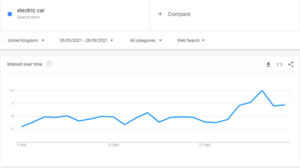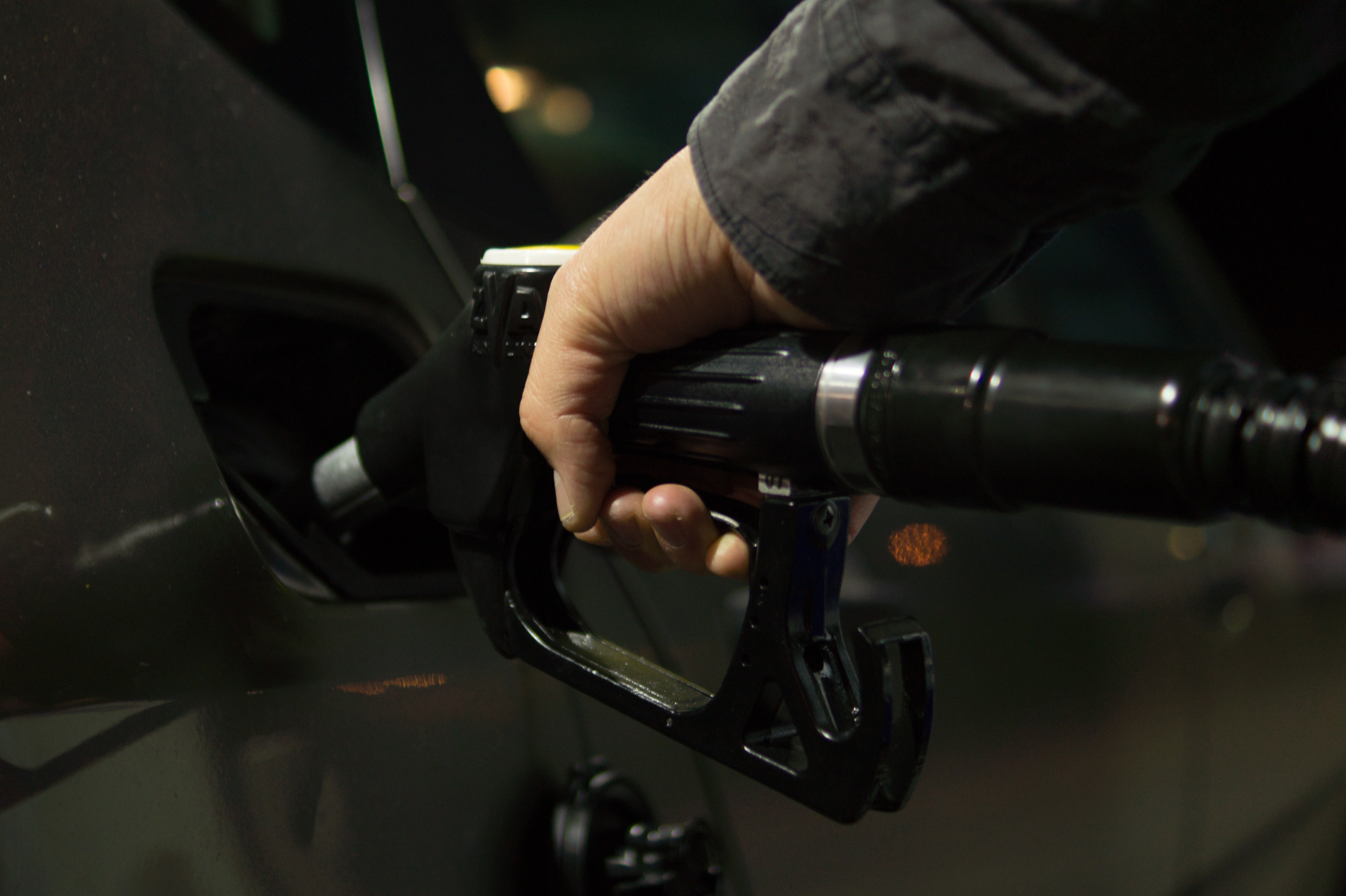Coned off fuel pumps, limits on fill-ups and queues as far as the eye can see. At the end of September, the UK experienced a fuel crisis that not only led to panic buying petrol and diesel but also led to a spike in electric vehicle enquiries.
Auto Trader claims to have seen a spike in electric car advert views as an increasing amount of diesel and petrol car drivers consider making the switch to electric cars 9 years ahead of the scheduled stop of sales on new diesel and petrol models.
Google Trends has also shown a significant increase for terms surrounding ‘electric car’ in the UK. This increased from normalised figures of 34 to 71 on Friday the 24th of September before rising to 100 on Sunday and remaining high over the following days. The demand for electric vehicles has remained strong in the following days, despite the government announcing that there is no actual shortage of fuel at refineries.
 Why are people panic buying fuel?
Why are people panic buying fuel?
While only a small amount of Esso and BP fuel garages closed temporarily on September the 23rd due to delivery issues, reports in the media led to car owners panic buying fuel, resulting in long queues and causing around two-thirds of independent fuel garages to run out of fuel across the UK according to the Petrol Retailers Association.
The primary reason for the delivery issues is a shortage of lorry drivers. The lack of lorry drivers in the UK is down to a mixture of factors, but it is mostly influenced by the ageing population of lorry drivers, Brexit and the COVID19 pandemic.
150 military tanker drivers were put on standby by the British Government just in case, but they are hoping the fuel panic will stabilise.
Many fuel filling stations have introduced a £30 limit of fill-ups to allow people to get a fair share of petrol, unlike the 24th and 25th of September where people were seen filling up bottles and tubs so they could ‘stock up’ on fuel.
In the week following the start of the panic buying, diesel drivers have taken the biggest hit, with most fuel filling garages completely running out of diesel, leaving some people on social media to resort to filling their car up with vegetable oil as a replacement, even though it is likely to ruin their car’s engine.
What does this mean for car buyers?
Despite the fact that electric vehicles have been around for years, an event that has had as much impact as this could be enough to increase the rate at which petrol and diesel users switch to an electric vehicle.
If you look back to the fuel shortages in the ’70s, you can see that it played a crucial role in the evolution of vehicles and the main events that helped create a new class of car with smaller and more economical engines.









